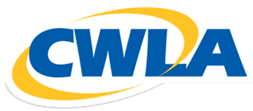The Child Welfare League of America (CWLA) and Robert F. Kennedy Children’s Action Corps, through its RFK National Resource Center for Juvenile Justice (RFK National Resource Center), are pleased to announce the launch of an exciting partnership to enhance each organization’s impact in the field of reform efforts to better serve dual status youth. CWLA has a long history of developing and promoting research and reform on behalf of youth involved in both the child welfare and juvenile justice systems, and the RFK National Resource Center has grown this seminal body of work to include the development of practical resources and tools as well as the provision of on the ground training and technical assistance throughout the nation. Together, CWLA and the RFK National Resource Center will continue their rich history of supporting child welfare and juvenile justice agencies undertaking system reform to better serve dual status youth. Through the continued development of innovative strategies and resources, this partnership will provide guidance to jurisdictions working collaboratively to improve outcomes for dual status youth, ultimately benefiting many of our most vulnerable youth and families.
As a result of this partnership, the following will be developed and provided to the field:
- Publications that offer evidence-based strategies for child welfare leaders to use in pursuing dual status youth reform that account for the uniquely identified child welfare system concerns and challenges.
- Workshops and webinars in topic areas of interest to child welfare professionals considering or already engaged in dual status youth reform.
- Opportunities for on-site training and technical assistance that target the challenges associated with dual status youth reform from the child welfare perspective.
CWLA and RFK Children’s Action Corps, through its RFK National Resource Center, are looking forward to this exciting partnership to ensure that child welfare and juvenile justice agencies and the communities they serve have expert support and guidance in the challenging work of reform efforts to better serve dual status youth.

![]()

